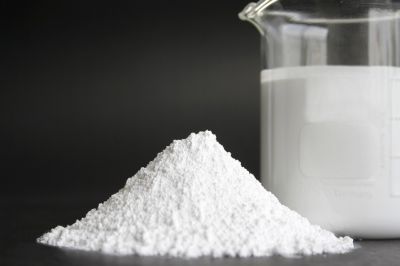Blog
Calcium Carbonate Chemical Formula – Key Properties and Applications
Calcium carbonate chemical formula, CaCO₃, is a fundamental compound found in nature and used in various industries. Understanding the properties and benefits of calcium carbonate starts with knowing its chemical composition, which plays a critical role in construction, health, and manufacturing.
In this article, we’ll break down the structure, uses, and significance of calcium carbonate, making it easy for you to grasp its importance in everyday life. Read on to discover more about calcium carbonate’s chemical formula and its many applications.
What Is Calcium Carbonate?
Calcium carbonate (CaCO₃) combines calcium, carbon, and oxygen into a chemical compound. You can find this natural mineral in rocks like limestone, marble, and chalk. It also forms in living organisms, including shells of marine creatures and eggshells.
The calcium carbonate chemical formula is what gives it the properties that make it versatile and useful in many areas of life, from construction to healthcare.

The Importance of Calcium in Calcium Carbonate
Calcium is an essential element in the human body and in various industrial processes. In CaCO₃, calcium is bonded with carbon and oxygen, providing the compound with its structure and stability. Calcium’s presence in this formula is crucial for its role in strengthening bones, neutralizing acids, and contributing to the creation of building materials like cement.
How Does the Calcium Carbonate Chemical Formula Work?
The chemical formula of calcium carbonate, CaCO₃, represents one atom of calcium (Ca), one atom of carbon (C), and three atoms of oxygen (O). When these atoms combine, they create a stable and non-toxic compound that occurs naturally.
Calcium carbonate’s formula also allows it to interact with acids in a process called neutralization. This makes it useful in a variety of industries, as we’ll explore further below.
Uses of Calcium Carbonate in Various Industries
The calcium carbonate chemical formula is central to its use in several industries. Its natural properties make it versatile, and its widespread availability makes it cost-effective. Here are a few key uses:
1. Construction Industry
In the construction industry, calcium carbonate is a primary component in the production of cement, mortar, and concrete. The chemical formula of calcium carbonate helps bind materials together, making it essential for building strong, long-lasting structures. It’s also used as a filler material in asphalt and road construction.
2. Healthcare Industry
The calcium carbonate chemical formula plays a key role in the healthcare sector, particularly as a calcium supplement. It helps individuals maintain healthy bones and teeth. Calcium carbonate is also a popular antacid used to neutralize stomach acid and relieve heartburn and indigestion.
3. Agricultural Industry
Calcium carbonate is vital in agriculture, where it serves as a soil conditioner. Its chemical formula allows it to neutralize acidic soil, improving the soil’s pH balance and boosting crop production. It’s commonly used in liming, which helps plants access essential nutrients.
4. Manufacturing and Industrial Applications
It is also widely used in manufacturing products such as paper, plastic, and paint. In these industries, calcium carbonate serves as a filler to improve the product’s texture, appearance, and durability. Additionally, its neutralizing properties make it useful in the treatment of wastewater and in pollution control systems.
Calcium Carbonate in Everyday Products
Calcium carbonate, due to its chemical formula, is found in a variety of everyday products that people use regularly. Some common products include:
- Toothpaste: The mild abrasiveness of calcium carbonate helps clean teeth and remove stains.
- Household Cleaners: Calcium carbonate acts as a gentle scrubber for surfaces.
How the Calcium Carbonate Chemical Formula Impacts the Environment
While calcium carbonate is a naturally occurring and eco-friendly compound, its use and extraction can still have environmental implications. Mining calcium carbonate from limestone quarries can lead to habitat destruction and increased carbon emissions. However, because it is non-toxic, it poses no harm to human health or wildlife when handled responsibly.
The ability of calcium carbonate to neutralize acidic conditions is also helpful in environmental restoration, particularly in water treatment facilities and for remediating acidic soils.
Conclusion: Why the Calcium Carbonate Chemical Formula Matters
Understanding gives insight into why this compound is so widely used. From construction to healthcare, agriculture, and manufacturing, calcium carbonate is a valuable resource with broad applications. Its natural abundance, combined with its useful properties, ensures that calcium carbonate will continue to be a critical material in various industries for years to come.
